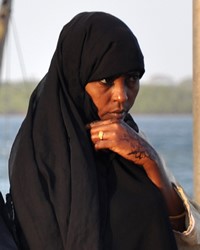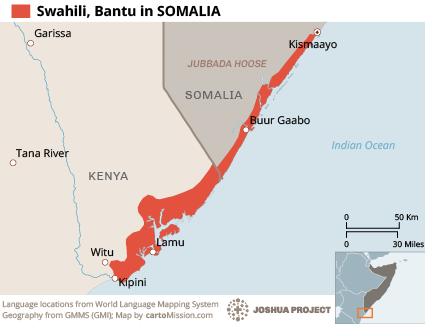The name Swahili literally means “coast,” and is the name given to several people groups that share a common culture (Uswahili), language (Kiswahili), and religion (Islam). They have subgroups; among them are the Barawani. The Swahili language has many different dialects. For about 2,000 years, the backbone of the Swahili economy has been commerce no matter what part of Africa they live in. They worked as cross-national merchants trading spices, slaves, ivory, gold and grain. Today, international commerce is still important to the Swahili but to a lesser degree. Many of the upper-class Swahili now manage small businesses, complete clerical work, and teach school classes. The Swahili have recently demonstrated an interest in Western culture. For example, in addition to attending Islamic schools, most children also attend non-religious schools to acquire a Western-style education.
Islam is one of the central parts of the Barawani Swahili identity. Anything Christian is seen as a foreign threat.
Pray for the Lord to give the Barawani Swahili group the humility to see the only one who can save them from sin and spiritual death.
Pray for the Lord to send his children as long-term ambassadors to the Barawani Swahili.
Pray for a movement to Christ to occur among the Barawani Swahili that will spread to every country in eastern and southern Africa.
Scripture Prayers for the Swahili, Barawani in Somalia.
| Profile Source: Joshua Project |













